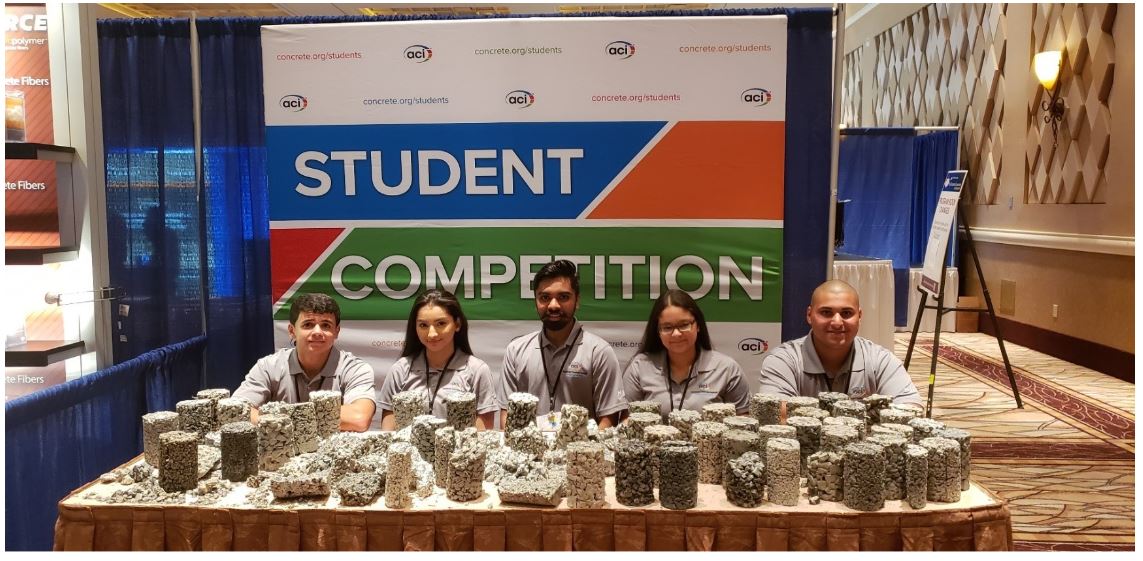NRMCA Helps New Jersey CIM Students in International Competition
Print this Article | Send to Colleague
In Mid-October, five undergraduate students from the New Jersey Institute of Technology's Concrete Industry Management Program attended the Fall ACI 2018 Conference, competing in the pervious concrete competition. The students (seen here, from left to right, Nikolaos Benyamin, Cindy Hernandez, Meghkumar Vadalia, Angy Grullon and Mohamed Hassan) competed against 51 other teams, both domestic and international, to produce pervious concrete which balances permeability and splitting tensile strength.
For this competition, the team benefited from the presence of NRMCA Senior Director, Local Paving, Ken Justice, who took the time to meet the team and guide them in the competition. He suggested that long fibers should be used instead of shorter ones to increase tensile strength and voids in the pervious concrete. To consolidate the concrete, Justice suggested using a proctor hammer (he even suggested ways of making one since the team did not have one). The team made five different mix designs to test the effects of size of fibers, aggregate size, compaction method and using SCM. To find the effects of fibers in pervious concrete the team made two mixes, one with fibers and the other without. The goal was to check if fibers change tensile strength, voids and permeability.
After testing mixes four and five, the team learned that the fibers increased the tensile strength and it had nearly no effect on permeability. In mixes two and three, the team compared the effect of fine aggregates and fly ash, concluding that fly Type F had no effect on the mix. Mix One used a different compaction method. The proctor hammer was used to compact the mix in the cylinder every two layers. This made a huge difference in permeability. Using a proctor hammer to compact the mixture was a game changer since it increased the tensile strength while not reducing the permeability. The team also used the same admixture proportions in all its mix designs: 900ml/100kg of Glenium 7500 and 80 ml/100 kg of Delvo. Justice also suggested that the competition should include compressive strength tests. The team was also told that small volume cylinders will act differently compared to actual pavements.
 The team did exceptionally well, placing 7th of the 52 competing teams. In addition to Justice, the team also thanked Dr. Mohamed Mahgoub, CIM director and NJIT ACI advisor.
The team did exceptionally well, placing 7th of the 52 competing teams. In addition to Justice, the team also thanked Dr. Mohamed Mahgoub, CIM director and NJIT ACI advisor.
For more information, contact Ken Justice at kjustice@nrmca.org.

